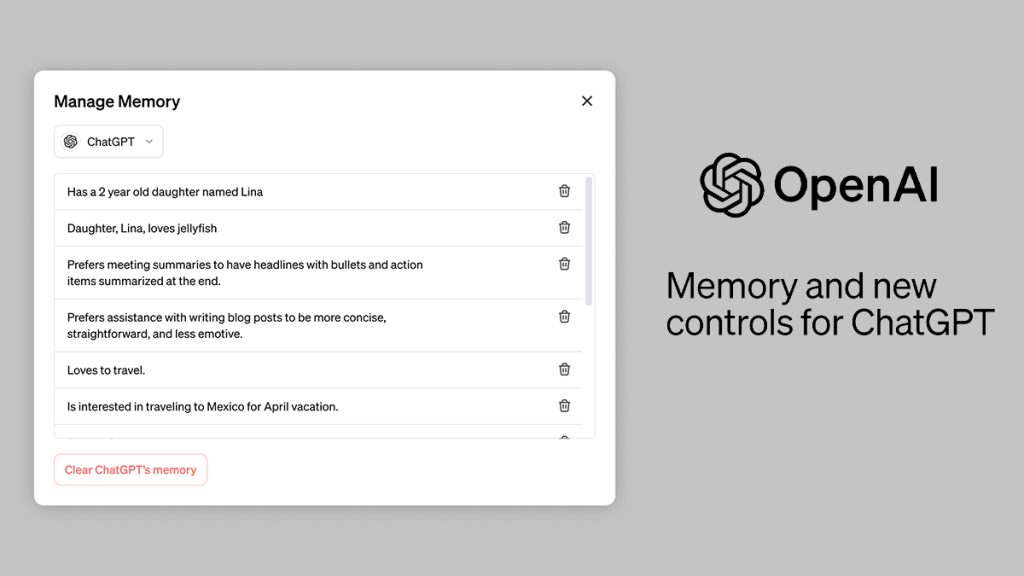
OpenAI today announced a new feature for ChatGPT aimed at improving user experience called “Memory”.
This feature aims to enhance conversations by enabling ChatGPT to remember information discussed across chats, eliminating the need for repetitive information and enhancing the usefulness of future conversations.
Understanding How Memory Works
As you converse with ChatGPT, you have the option to ask it to remember specific details or allow it to pick up information naturally.

With continued usage, ChatGPT’s memory capability improves over time, leading to more personalized interactions. For instance:
- If you express a preference for specific meeting note formats, ChatGPT will remember and implement this format for future meetings.
- By informing ChatGPT about owning a business like a coffee shop, it can assist in relevant tasks, such as drafting social media posts.
- Mentioning personal details, like having a child who loves jellyfish, enables ChatGPT to suggest relevant ideas, such as birthday card designs.
User Control and Privacy
Users retain full control over ChatGPT’s memory feature. It can be turned off at any time through settings (Settings > Personalization > Memory).
Additionally, users can instruct ChatGPT to forget specific information or manage memories through settings (Settings > Personalization > Manage Memory). Notably, memories persist even after deleting individual chats.

OpenAI emphasizes privacy and safety considerations regarding memory usage. Steps are taken to mitigate biases and prevent the proactive recall of sensitive information, unless explicitly requested by the user.
Enhanced Efficiency for Enterprise and Team Users
Memory integration offers significant advantages for Enterprise and Team users, allowing ChatGPT to learn preferences and streamline workflows. For example:
- Customized tone and format preferences can be remembered for tasks like drafting blog posts.
- Programming language preferences are retained, improving efficiency in coding tasks.
- Data provided for business reviews can be securely stored and utilized for generating reports.
Memory for GPTs
In addition to ChatGPT, OpenAI mentions plans to introduce memory capabilities for other GPT models. These memories are distinct and not shared with users or builders.

Availability and Rollout
Memory testing will initially be available to a select group of ChatGPT free and Plus users, with broader availability planned for Enterprise and Team users in subsequent rollouts.
The company also mentioned that plans for a broader rollout will be shared soon.
